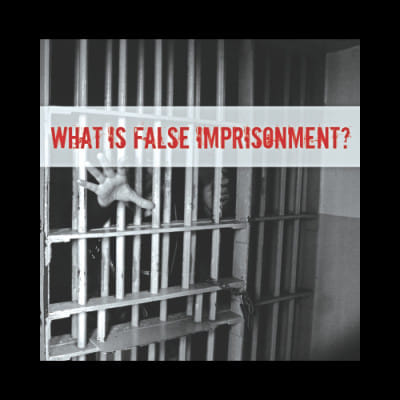Lawful Arrest and false imprisonment

Section 54 of the Code of Criminal Procedure (CrPC) has given sufficient power to any police officer to arrest a person without warrant but the police can exercise the power only in those circumstances where a police officer possesses some evidence indicating involvement with the offence. Unfortunately, in most of the cases it can be seen that most of the police officers are arresting the people without collecting any reasonable indications connecting with the offence. Perhaps section 54 is the most pervasive section that is being misused by the police officers.
Fazlu Miah, a 55 years old man has spent 22 years in Sylhet central jail for no offence. In July, 1993 he was arrested from Sylhet under section 54 of the CrPC and later on he was charged under section 13 of the Lunacy Act 1912 on charge of 'wandering at large' being a man of unsound mind, officials records shows. On 15th October, 2015 he has released from the prison after spending 22 years in jail without any offence. It feels good when we know that he is free now but can he get back his 22 years of his life? Can we call this limited period of imprisonment is false imprisonment? Is false imprisonment related with our Constitution? Can he claim compensation for 22 years in jail without offence?
What is false imprisonment?
False imprisonment is restraining a person in a bounded area without justification or consent. It is a common law misdemeanour and a tort. It is not the degree of the imprisonment that matters but it is the absence of lawful authority to justify unlawful confinement which is of relevance. To prove false imprisonment, period of confinement is necessary. In general, if the detention period is stretched for an irrational period of time than the detention may become unlawful. Fazlu Miah has spent 22 years in jail which is unreasonable at any circumstances. The time period is of crux while determining the aggregate of compensation to be awarded to the injured party.
Constitutional effect of false imprisonment
Article 32 of the Constitution says that “No person shall be deprived of life or personal liberty saves in accordance with law”. This provision clearly shows that personal liberty should not be curtailed in any wrongful manner. Given the fact, it can be said that the long term imprisonment of Fazlu Miah without any offence was arbitrary and hence, article 32 is violated. In addition, article 21 says that person in the service of the Republic has a duty to perform public duties with discipline. If a person is facing long time imprisonment for no offence then how can we say that the public servant has performed his duty with discipline? Isn't it a violation of the article 21 too? And any violation of article 21 attracts the provision of article 27 which equality before law. By providing arbitrary imprisonment, it shows that they are creating the situation of inequality of citizens.
Although in our country, there is no provision of claiming compensation for false imprisonment but we can see the practice in India.
In Bhim Singh, MLA v State of J & K & Ors. (1985) 4 SCC 677, holding illegal detention in police custody of the petitioner Bhim Singh to be violated of his rights under articles 21 and 22(2) of the Constitution, this Court, in exercise of its power to award compensation under article 32, directed the State to pay monetary compensation to the petitioner.
In the case of Rudul Sah v State Of Bihar 1983 AIR 1086, 1983 SCR (3) 508, the fact was the petitioner who was detained in prison for over 14 years filed a habeas corpus petition under article 32 of the Constitution on the ground of illegal detention. The Supreme Court directed immediate release of the petitioner and directed the state to grant the damages.
Apart from these 2 cases there are so many case law examples that have given compensation for false imprisonment in India.
On the basis of the discussion above, can we say that the imprisonment was false which violated several provisions of our constitution? If so, then can Fazlu Miah claim for compensation? I think it is also time for us to think about the victim rights and compensation policies to restore the life of victims. False imprisonment is one of the torts and a form of human rights violation. Our socio-legal system is based on non-violence, shared respect, and human dignity of the individual. Personal liberty is protected under article 32 of the Constitution and cannot be abrogated without any lawful necessity and false imprisonment is incongruous of the same.
The writer is Legal Research Assistant at Bangladesh Institute of Law and International Affairs (BILIA).

 For all latest news, follow The Daily Star's Google News channel.
For all latest news, follow The Daily Star's Google News channel. 



Comments